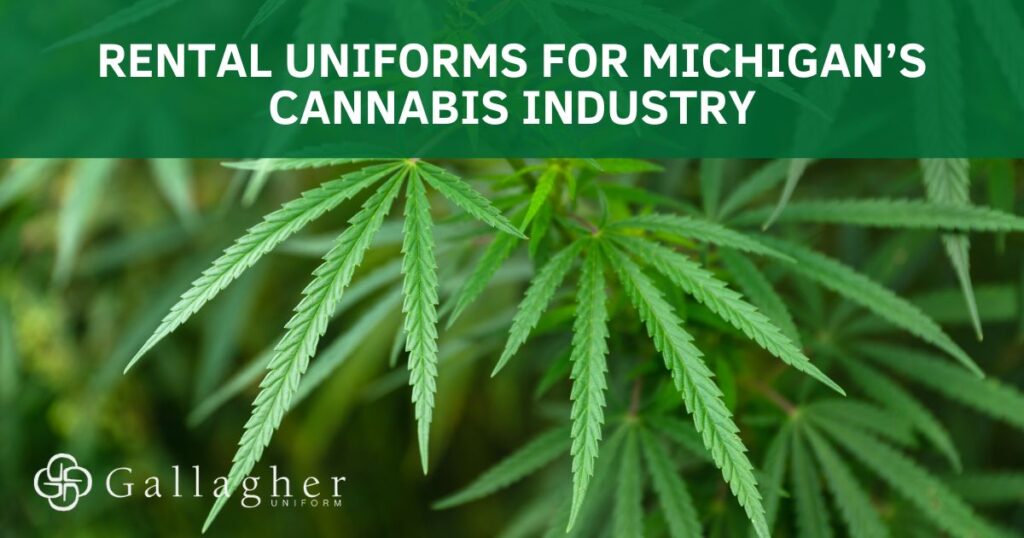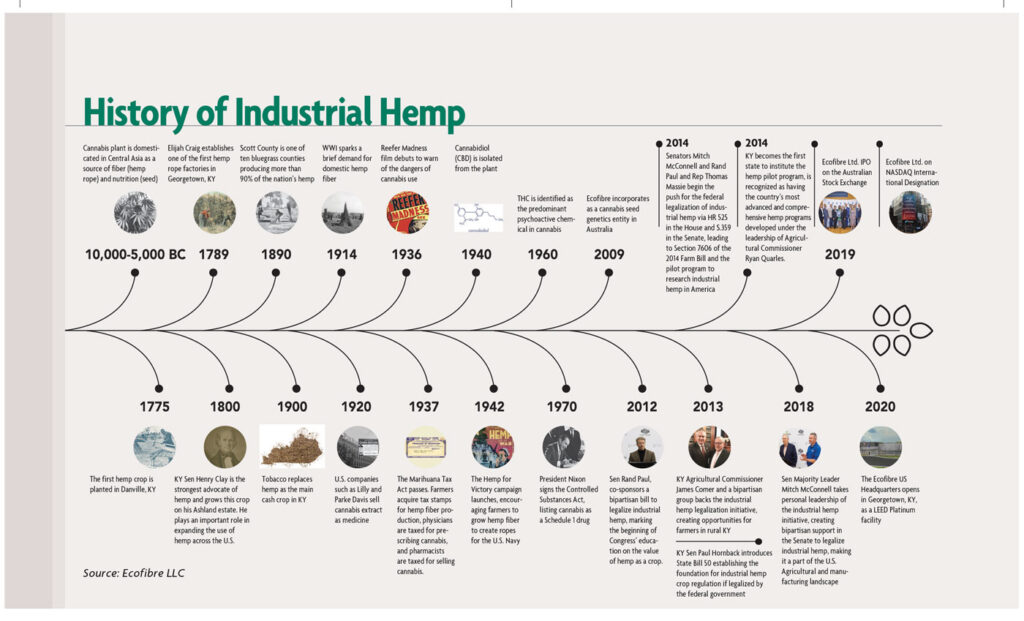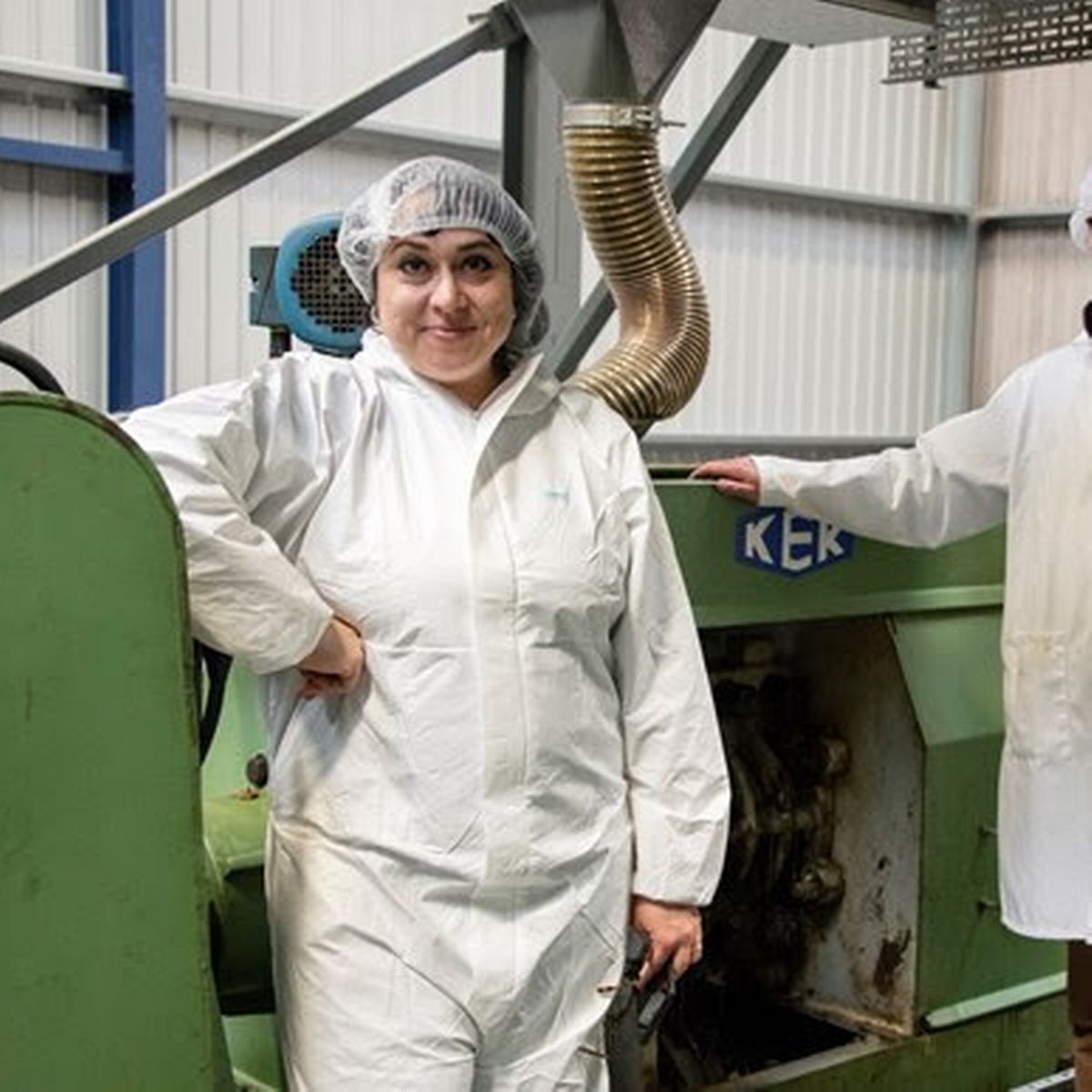In the ever-evolving world of workwear and uniforms, hemp has emerged as a sustainable and versatile material with a growing role to play. From the construction site to the office, hemp is making its mark across various industries. This eco-friendly fabric not only offers practical and durable qualities but also presents a sustainable alternative to conventional materials. Join us as we explore the innovative ways in which hemp is being incorporated into workwear and uniforms, revolutionizing the way we dress for success.
Benefits of Hemp in Workwear and Uniforms
Sustainability
When it comes to sustainability, hemp is a clear winner for workwear and uniforms. hemp is an incredibly eco-friendly crop, requiring minimal water and pesticides. It grows quickly and densely, providing a high yield per acre compared to other crops. Furthermore, hemp is capable of absorbing large amounts of carbon dioxide from the atmosphere, making it a valuable tool in combating climate change. By incorporating hemp into workwear and uniforms, companies can significantly reduce their environmental impact and promote sustainability.
Durability
Hemp fabric is highly durable, making it ideal for workwear and uniforms that need to withstand regular use and tough conditions. It is known to be four times stronger than cotton, making it less prone to wear and tear. This durability translates to longer-lasting garments, reducing the need for frequent replacements and thereby reducing waste. Additionally, hemp fiber becomes softer and more comfortable with each wash, ensuring that workwear remains comfortable even after extended use.
Breathability
The breathability of workwear is essential to ensure comfort, especially in strenuous and physically demanding jobs. Hemp fabric is highly breathable, allowing air to circulate and preventing excessive heat buildup. This natural breathability helps regulate body temperature, keeping workers cool and comfortable even in hot and humid conditions. By choosing hemp workwear and uniforms, companies can prioritize the well-being and comfort of their employees.
Moisture-wicking
In industries that involve physical labor or work in outdoor environments, moisture-wicking properties are crucial. Hemp fabric naturally wicks away moisture from the body, keeping the skin dry and preventing discomfort caused by sweat. This moisture-wicking feature makes hemp workwear suitable for various industries where employees may be exposed to challenging weather conditions or engage in strenuous activities.
Antibacterial properties
Another significant benefit of hemp in workwear and uniforms is its inherent antibacterial properties. Hemp fabric naturally inhibits the growth of bacteria, reducing unpleasant odors and maintaining cleanliness. This feature can be particularly valuable in industries such as healthcare and hospitality, where hygiene is of utmost importance. By choosing hemp workwear, companies can promote a healthier and more sanitary work environment for their employees.
Hemp as a Replacement for Traditional Workwear Materials
Cotton
Cotton has long been a staple in workwear and uniforms due to its comfort and breathability. However, compared to hemp, cotton production is much more water-intensive and heavily reliant on pesticides. Additionally, hemp requires significantly less land to cultivate and provides a higher yield. By replacing cotton with hemp in workwear and uniforms, companies can reduce water consumption and pesticide use, making a substantial positive impact on the environment.
Synthetic Fibers
Synthetic fibers, such as polyester and nylon, are commonly used in workwear for their durability and quick-drying capabilities. However, synthetic materials are derived from non-renewable resources and release microplastics during washing, contributing to plastic pollution in oceans and waterways. Hemp, on the other hand, is a natural and renewable resource that biodegrades easily. Choosing hemp over synthetic fibers in workwear can significantly reduce the environmental impact associated with clothing production.
Wool
Wool is often favored for its insulation properties and ability to regulate body temperature. However, the farming practices associated with wool production can have detrimental effects on animal welfare and the environment. Hemp offers a cruelty-free alternative that reduces the carbon footprint and eliminates the need for animal fibers. By embracing hemp as a replacement for wool in workwear and uniforms, companies can align themselves with ethical and sustainable practices.

This image is property of hempfoundation.net.
Industry Applications of Hemp Workwear and Uniforms
Agriculture and Farming
In the agriculture and farming sector, where individuals are exposed to outdoor elements and physical labor, hemp workwear can provide excellent protection and comfort. The durability and breathability of hemp make it suitable for farm work, protecting workers from abrasions and maintaining airflow to prevent overheating. Additionally, the moisture-wicking and antibacterial properties of hemp help keep workers dry, clean, and odor-free throughout the day.
Construction
Construction workers encounter demanding and labor-intensive conditions, requiring workwear that can withstand rugged environments. Hemp workwear’s durability and strength make it an ideal choice for the construction industry. Whether it’s protecting against impact or ensuring breathability, hemp clothing can offer the necessary comfort and protection for construction workers while promoting sustainability.
Manufacturing and Industrial
The manufacturing and industrial sectors often involve physically demanding tasks that require durable and protective workwear. Hemp workwear excels in these environments due to its durability and resistance to wear and tear. Additionally, hemp’s breathability and moisture-wicking properties help keep workers comfortable and dry, even in environments with high heat or moisture levels. By embracing hemp workwear, companies can provide their employees with clothing that meets the demands of their work while minimizing environmental impact.
Hospitality and Service
In the hospitality and service industry, appearance and comfort are crucial. Hemp workwear offers an opportunity to combine style, sustainability, and functionality. The ability of hemp fabric to regulate body temperature and resist odors can ensure that employees remain comfortable throughout their shifts, even in fast-paced and demanding environments. Furthermore, hemp workwear can contribute to a brand’s image by showcasing a commitment to sustainability and responsibility.
Healthcare
In the healthcare sector, where hygiene is paramount, hemp workwear can offer significant advantages. The antibacterial properties of hemp fabric make it an excellent choice for healthcare uniforms, reducing the risk of bacterial contamination. Hemp workwear can also provide optimum comfort for healthcare professionals who spend long hours on their feet, thanks to its breathability and moisture-wicking abilities. By incorporating hemp into healthcare uniforms, companies can prioritize the well-being of their staff and create a more sanitary work environment.
Fashion and Style Trends in Hemp Workwear and Uniforms
Incorporating hemp in casual workwear
Casual workwear is increasingly becoming a popular choice in various industries, and hemp’s versatility fits perfectly within this trend. Hemp is now being incorporated into stylish and comfortable casual workwear, blurring the lines between work and leisure fashion. Whether it’s in the form of trousers, shirts, or jackets, hemp workwear provides a fashionable yet sustainable alternative for employees who value comfort and style.
Design innovations in hemp uniforms
Designers are continuously exploring new possibilities and innovations in hemp workwear and uniforms. From tailored suits to fashionable dresses, hemp is making its mark in the world of fashion and workwear. The versatility of hemp fabric allows for creative cuts and designs while offering the durability and functionality required for work environments. With ongoing design innovations, hemp uniforms have the potential to redefine traditional notions of work attire and inspire a new era of sustainable style.

This image is property of www.gallagheruniform.com.
Challenges and Limitations in Using Hemp for Workwear
Perceptions and stigma around hemp
One of the main challenges in embracing hemp for workwear is overcoming the perceptions and stigma associated with this versatile plant. Hemp has often been erroneously linked to its cousin, marijuana, leading to misconceptions and misunderstandings. Educating consumers about the differences between hemp and marijuana is vital in dispelling these myths and fostering acceptance of hemp as a sustainable and beneficial material for workwear.
Cost considerations
While hemp workwear offers numerous benefits, it may come at a slightly higher cost compared to traditional materials initially. The cultivation and processing of hemp can involve higher labor costs and require specialized equipment. However, as the demand for hemp workwear increases and economies of scale are achieved, the cost is likely to become more competitive. Companies willing to invest in sustainable practices recognize that the long-term benefits of hemp workwear outweigh any initial price differences.
Availability of hemp fabric
Finding a consistent and reliable supply of hemp fabric can be a challenge due to limited cultivation and processing infrastructure. Despite the increasing popularity of hemp, many regions have yet to fully embrace its cultivation. However, with the growing interest in sustainable workwear and the expansion of hemp cultivation, availability is expected to improve over time. Collaboration between the textile industry and hemp growers can further accelerate the availability of high-quality hemp fabric for workwear.
Prominent Brands Embracing Hemp Workwear
Patagonia
Patagonia, an outdoor clothing company known for its commitment to sustainability, has incorporated hemp into its workwear line. Their hemp workwear combines durability, comfort, and eco-friendly practices, reflecting the brand’s dedication to environmental stewardship.
Tentree
Tentree, a Canadian sustainable apparel brand, incorporates hemp fabric into its workwear designs. With a focus on reforestation and sustainability, Tentree offers hemp workwear that doesn’t compromise on style, durability, or environmental impact.
The Hemp Foundation
As the name suggests, The Hemp Foundation is dedicated to promoting the use of hemp in various industries, including workwear. They create hemp workwear that showcases the plant’s versatility, durability, and sustainability, providing an eco-friendly alternative to conventional uniforms.
PrAna
PrAna incorporates hemp into their workwear line to align with their commitment to sustainability and responsible manufacturing. Their hemp workwear combines style, comfort, and ethical practices, appealing to consumers who value both fashion and environmental consciousness.
Outerknown
Outerknown, a brand founded by surfing legend Kelly Slater, focuses on creating sustainable and functional workwear. They utilize hemp fabric for its durability and sustainability, ensuring their workwear reflects their commitment to protecting the environment.

This image is property of letstalkhemp.com.
Regulations and Legalities for Hemp Workwear
Legality of hemp cultivation and processing
The legal status of hemp cultivation and processing varies across countries and regions. In some places, hemp cultivation is tightly regulated, requiring licenses and adhering to specific THC concentration limits. Therefore, it is crucial for companies to ensure compliance with local laws and regulations when incorporating hemp into their workwear. Staying informed about evolving legislation surrounding hemp cultivation is essential to avoid legal complications.
Certification standards for hemp fabric
Certification standards for hemp fabric can help guarantee quality, authenticity, and sustainability. Various certifications, such as Global Organic Textile Standard (GOTS) and Organic Content Standard (OCS), ensure that hemp fabric is produced according to specific environmental and social criteria. Companies interested in utilizing hemp workwear should prioritize sourcing from certified suppliers to ensure the highest standards of sustainability and accountability.
Import and export regulations
When importing or exporting hemp workwear, it is crucial to be aware of import and export regulations related to hemp and textiles. Each country may have specific requirements, including declarations, permits, and compliance with labeling regulations. Familiarizing oneself with these regulations and working with experienced customs agents can help ensure a smooth and compliant import/export process.
Environmental and Social Sustainability of Hemp Workwear
Reduced carbon footprint
The cultivation of hemp requires fewer resources compared to many other crops. Hemp absorbs significant amounts of carbon dioxide from the atmosphere as it grows, making it a carbon-negative plant. By utilizing hemp workwear, companies can contribute to reducing their carbon footprint and combatting climate change.
Water conservation
Hemp is a drought-tolerant crop that requires significantly less water compared to cotton. Choosing hemp workwear over traditional options can help conserve water resources, addressing the global challenge of water scarcity. The use of hemp fabric in workwear also eliminates the need for chemical-intensive processes, reducing water pollution and promoting healthier ecosystems.
Fair trade practices
Promoting social sustainability is integral to responsible and ethical workwear manufacturing. By sourcing hemp fabric from suppliers dedicated to fair trade practices, companies can ensure that workers involved in the production process are treated fairly and receive fair wages. Embracing fair trade practices within the hemp workwear industry contributes to creating a more equitable global supply chain.

This image is property of i2-prod.aberdeenlive.news.
Consumer Demand and Market Growth for Hemp Workwear
Increasing awareness and preference for sustainable workwear
Consumers around the world are becoming increasingly conscious of the impact their purchasing decisions have on the environment. There is a growing demand for sustainable alternatives in the clothing industry, including workwear and uniforms. As awareness grows, so does the preference for hemp workwear that offers a combination of style, comfort, and sustainability. Companies that actively respond to this demand position themselves as leaders in sustainable practices and gain a competitive edge.
Market analysis and growth projections
Market analysts project significant growth in the hemp workwear sector in the coming years. The global workwear market is expanding rapidly, and the increasing interest in sustainability is driving the demand for eco-friendly alternatives. With the versatility and benefits of hemp gaining recognition, the market for hemp workwear is expected to experience substantial growth. This presents an opportunity for both established and emerging brands to capitalize on the growing market and contribute to a more sustainable future.
Conclusion and Future Prospects
The role of hemp in the workwear and uniform industry is expanding, driven by its sustainability, durability, and numerous other benefits. Hemp has the potential to replace traditional materials such as cotton, synthetic fibers, and wool, offering a more environmentally friendly option without compromising on performance. Industries ranging from agriculture to healthcare can benefit from incorporating hemp workwear, promoting worker comfort, hygiene, and sustainability.
While there are challenges to overcome, including misconceptions and availability, prominent brands have already embraced hemp workwear, setting an example for the industry. Regulatory standards and certifications ensure the authenticity and sustainability of hemp fabric, while the reduced carbon footprint and water conservation benefits make hemp workwear an attractive choice for brands committed to environmental responsibility.
As consumer demand for sustainable workwear continues to grow, the market for hemp workwear is projected to expand significantly. This presents an opportunity for innovation and growth, as companies explore new design possibilities and capitalize on the benefits of hemp. By embracing hemp in workwear and uniforms, companies can contribute to a more sustainable future while providing their employees with comfortable, functional, and eco-friendly clothing options.

This image is property of wordpress.textileworld.com.
Recent Posts
Discover how bubble hash is rated on a 1 to 6 scale. From texture and color to aroma and potency, learn the key factors that determine the quality of bubble hash. Whether you're a seasoned cannabis...
Looking to learn about the most popular style of hash? This article explores the different types, from traditional to bubble hash, and reveals the people's favorite. Join us on a journey through the...

